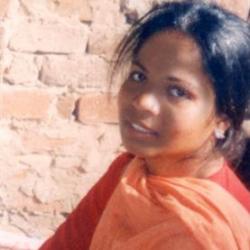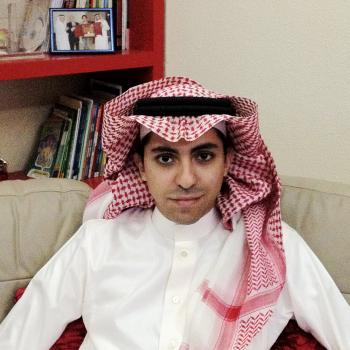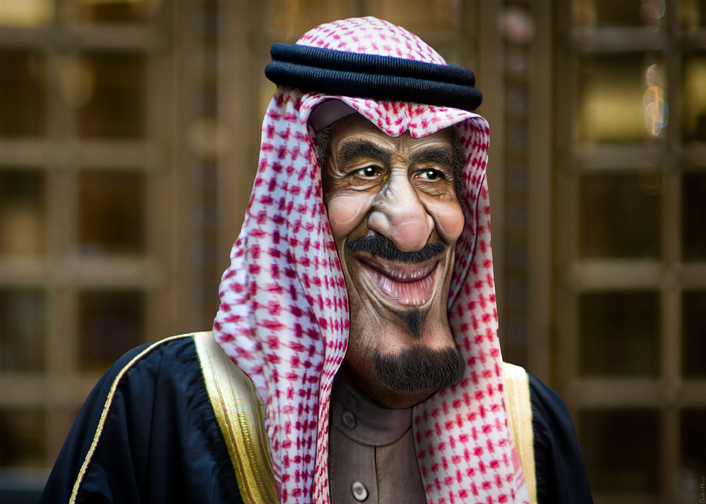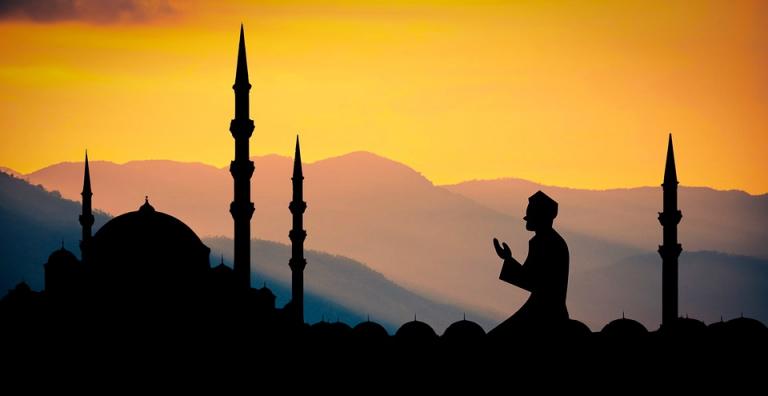Co-authored by Jennah Adam. Jennah is an artist, editor, and writer whose work has been published on websites like The Muslim Vibe and Coming of Faith.
A cardiologist by profession, Kashif Chaudhry is currently training in the field of Cardiac Electrophysiology in the Greater Boston area. Aside from blogging regularly on The Huffington Post, his articles have been published on CNN, NYT, NJ Record, Daily Caller, and Pakistani papers including DAWN, Daily Times, The Nation, and Express Tribune. He moved to the United States to escape the persecution the Ahmadiyya community faces in Pakistan, and has thence striven to address the misunderstandings that many people may have about Ahmadi Muslims. Because this topic is nearly always swept aside and discussion regarding this is stunted, I thought it was about time we hear about Ahmadiyya Islam from an Ahmadi Muslim, and hopefully develop a better understanding of this faith.
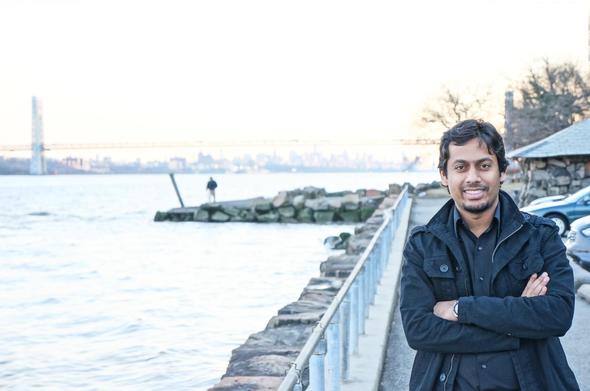
Q1: Salaam alaikum, Kashif, may peace be with you. It is with chagrin that I admit that I know very little about Ahmadiyya beliefs. Searching online can bring about misleading information, so I feel that it is best to ask an Ahmadi Muslim about his or her beliefs rather than take it from secondhand sources. May you explain to us what Ahmadiyya Islam is exactly?
A: Wa alaikum salam, Jennah. This is unfortunately such a taboo topic within the wider Muslim community that it is rarely even discussed. I am very grateful for you giving me the opportunity to explain to my non-Ahmadi Muslim brothers and sisters about the Ahmadiyya sect within Islam.
Islam was revealed to mankind through Prophet Muhammad (pbuh) about 1400 years ago. In the form of the Holy Quran, he (pbuh) brought the final law to mankind. In just a matter of years, he brought about a social, moral and spiritual revolution in Arabia. He promoted humanity and brotherhood, peace and love. However, he also foretold that in the latter days, his community would face division and discord. Muslims would forget the true spiritual essence of Islam, and at such a time of confusion, despair, and moral decadence, a prophetic figure – the Imam Mahdi (guided Imam) or Messiah – will appear to reform the Muslims and cause a renaissance of Islam.
Ahmadi Muslims are Muslims who recognize Mirza Ghulam Ahmad (as) (of Qadian, India) as this prophetic figure. Ahmadis believe he came to reform the Ummah in accordance with the prophecies of the Holy Founder of Islam, the Khataman Nabiyeen (aka Seal of the Prophets), Prophet Muhammad (pbuh). Ahmadi Muslims profess the Islamic Creed and believe in all five pillars and six articles of faith. Unlike what is often rumored, Ahmadi Muslims believe in the Quran as the final law and Prophet Muhammad (pbuh) as the final law-giver. The Imam Mahdi’s prophetic mission was to reform and unite Muslims and spread the beautiful teachings of Islam to the whole world. He was supposed to be a servant of Prophet Muhammad (pbuh) and support his mission, not defy his authority by bringing any new law.
Other distinctive teachings of the Ahmadi Muslims include complete rejection of any human punishment for apostasy and blasphemy, in accordance with the clear message of the Quran. Ahmadi Muslims also reject a belligerent interpretation of Jihad (except in self-defense of course). Over the last 125 years, the Ahmadiyya Muslim Community has grown significantly. From one man in 1889, Ahmadiyya Islam has now won tens of millions of members in over 200 nations of the world. The Ahmadiyya Muslim Community is also the fastest growing faith group worldwide, leading international efforts to promote the true peaceful and spiritual teachings of Islam and heavily engaging in humanitarian service. The community’s official motto is “Love For All; Hatred For None.”
Q2: May you clarify what you mean by the term “Seal of the Prophets?” Many Muslims take that to mean the end, or the last.
A: The Quran refers to the Prophet Muhammad (pbuh) as Khataman Nabiyeen or Seal of the Prophets. Orthodox clergy has taken this to mean the absolute final and last prophet after whom no other prophet can ever come, while still holding the view that Jesus (on whom be peace) would return and be the last prophet to walk the earth in time.
There is a lot of propaganda, especially in Pakistan, about how Ahmadi Muslims reject the title Khataman Nabiyeen for Prophet Muhammad (pbuh). This is entirely false. Ahmadi Muslims only differ with the current orthodoxy in the interpretation of the phrase. We believe Prophet Muhammad (pbuh) is the “Seal of all Prophets.”
Just as a seal is used to attest a document, Prophet Muhammad (pbuh) came to authenticate and verify the truth of all prophets. The word Khatam is also used idiomatically in Arabic to refer to the greatest in a particular area. For example, the title Khatamul Auliya (Seal of the Saints) conferred to Hadhrat Ali (ra) by Prophet Muhammad (pbuh). He was not the absolute last saint, but was the most exalted of them all. He was the gold standard; he was the pinnacle; he will be remain the reference whenever sainthood is discussed anywhere. Every other saint will be compared to him. Khatam-as-Shuara, Khatam al Muhajireen, Khatam al Mujahideen, Khatam al Huffaaz, Khatam al Muhaddiseen etc have likewise been used for those who achieved excellence in their respective works. Similarly, Prophet Muhammad (pbuh) is the most exalted of all prophets. He is also the final law-bearer and there can be no change in the Shariah – the Quran – that he brought.
All Muslims believe in the coming of a reformer, the Messiah and Mahdi in the latter days. He would come and reform mankind at a time when even Muslims would have forgotten the essence of Islam and the Umma (Muslim community) would be in chaos, devoid of leadership and guidance. Whereas mainstream Sunni Muslims believe this prophetic reformer would be from an old Umma (Jesus, the Messiah for the Umma of Prophet Moses), Ahmadi Muslims believe this Umma is final and last and the new reformer would therefore be born from within this FINAL Umma, as is also evident from Prophet Muhammad’s (pbuh) words, “he will be from among you.” (Sahih Muslim).
If Prophet Jesus, who the Ahmadi Muslims understand to have died a natural death 2000 years ago in accordance with the Quran, was to come back in this age, then we will have to concede that Jesus is the last prophet to walk the earth. For Sunni Muslims I have spoken to, this poses a dilemma which some try to solve by demoting Jesus Christ’s status and stripping him of his prophethood. Except that there is no evidence to support this, and sayings of Prophet Muhammad (pbuh) repeatedly refer to the coming Messiah as a prophet of God.
Ahmadi Muslims believe the Promised Messiah was to be a prophet subordinate to the Prophethood of Prophet Muhammad (pbuh), bringing no new law, only reforming Muslims and calling them to the true interpretation of Islam and the Quran, as was foretold by the Khataman Nabiyeen himself. His mission cannot be seen as isolated and separate from that of his Master, Prophet Muhammad (pbuh). And we believe that this Promised Messiah has come in the person of Hadhrat Mirza Ghulam Ahmad (as).
For details on the Ahmadiyya interpretation of Khataman Nabiyeen from the Quran, hadith and sayings of various saints, consider reading this short book.
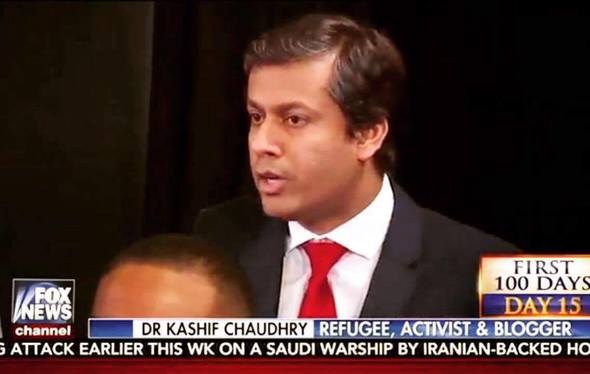
Q3: Hadhrat Mirza Ghulam Ahmad is said to be a reformer, but is he reforming Muslims or Islam?
A: Great question. Ahmadi Muslims believe that Islam is the final religion, brought to mankind through Prophet Muhammad (pbuh) over 1400 years ago. It has been revealed in its entirety and embodies perfect teachings for the guidance of humankind. As such, Islam does not need any reform. But Muslims do. And this is why Prophet Muhammad (pbuh) foretold the coming of a reformer in the latter days, at a time when “there will remain of Islam nothing except its name and nothing will remain of the Quran except its words. Mosques will be splendidly furnished but destitute of guidance. The clerics will be the worst people under Heaven; strife will issue from them and avert to them.” – Narrated by Hadhrat Ali (ra) (Mishkatul Masabih, Kitabul Ilm).
The proof that we are living in this prophecized age is in the pudding. There is rampant division and discord in the Ummah. Spirituality, which is the true essence of Islam, has been replaced with a ritualistic and superficial – often rigid – interpretation of faith.
Ahmadiyyat, as we believe it, is a renaissance of Islam, not a reform of it. The Messiah, Mirza Ghulam Ahmad (as), came to revive the true teachings of Islam as brought to mankind by Prophet Muhammad (pbuh), in accordance with his prophecies. This is why even though his prophetic mission is a continuation of the mission of Prophet Muhammad (pbuh), it is subordinate to it and has no significance whatsoever when isolated from it.
Q4: What are some of the main differences between Ahmadiyya beliefs and mainstream Sunni or Shi’a beliefs?
A: When Prophet Muhammad (pbuh) foretold the coming of a Messiah and Mahdi, he called him the judge and the arbitrator, and urged Muslims to follow his rulings. This is because over the last 1400 years, there have emerged various, often contradictory and conflicting, interpretations of Islam. Which one is right? Who is to decide?
Hadhrat Mirza Ghulam Ahmad (as) challenged the status quo by presenting views that were unacceptable to the contemporary clerics, so much so that they declared him a heretic. Some of these distinctive beliefs were:
1) Universal freedom of conscience: Mirza Ghulam Ahmad (as) argued that Islam was never spread by the sword, and that every human being was free to follow their conscience. He said:
“Those who hold such views are not the friends of Islam but its deadly foes. They hold that Islam needs the sword for their advancement, thus brand its purity and cast a slur upon its holy name. The religion that can easily establish its truth and superiority by sound intellectual arguments, heavenly signs or other reliable testimony, does not need the sword to threaten men and force a confession of its truth from them. Religion is worth the name only so long as it is in consonance with reason. If it fails to satisfy that requisite, if it has to make up for its discomfiture in argument by handling the sword, it needs no other argument for its falsification. The sword it wields cuts its own throat before reaching others.”
Ahmadi Muslims believe that there is absolutely no worldly punishment for apostasy in Islam, and uphold complete freedom of conscience as guaranteed to man in the Quran.
2) Jihad: Many of Hadhrat Mirza Ghulam Ahmad (as)’s contemporaries believed in a violent interpretation of Jihad. He argued that their interpretation was flawed and opposed to the principles of Islam. For example, he said:
“The second principle for which I have been appointed is the reform of the incorrect concept of jihad that is widespread among some ignorant Muslims. So God has made me understand that the prevailing concept of jihad is opposed to the Qur’anic teachings. Fighting commanded in the Holy Qur’an… was based on the fact that those who took up swords unjustly, murdered Muslims without cause, and took oppression to extremes, be killed by the sword….In this age, jihad has taken a spiritual form. And jihad in this age demands that we strive in raising the Islamic kalimah… Give answers to opponents, spread the beauties of the Islamic faith in the world, and manifest the truthfulness of the Holy Prophet [pbuh] to the world. This is jihad, until such a time that God shows another form in the world.”
As such, Ahmadi Muslims, engage in an intellectual jihad of the pen to defend Islam and the character of Prophet Muhammad (pbuh) from all onslaughts.
3) Blasphemy Laws: Ahmadi Muslims reject any worldly punishment whatsoever for blasphemy and believe that punishment for such insult lies with God alone.
4) Ahmad Muslims believe in the separation of Mosque and State.
5) In terms of theology, Ahmadi Muslims also hold the distinctive belief that Jesus (as) died a natural death (Details here) like all other prophets and did not physically ascend to the skies. We make our case from the Quran and Sunnah.

Q5: Ahmadi Muslims have faced horrid persecution in the past. Is this still going on today? Are things getting better or worse, do you think?
A: Unfortunately the persecution is still ongoing. In most Muslim countries, Ahmadi Muslims do not have freedom of speech and religion. In most Arab States, Ahmadi Muslims cannot open their own Mosques or worship freely. The persecution is worst in Pakistan where Ahmadi Muslims have been denied complete freedom of religion and identity. Ahmadis can be jailed for three years under the country’s anti-Ahmadi laws for “crimes” such as reading the Quran, saying the Islamic creed (Kalima), identifying as Muslim, saying the Adhan etc. The government of Pakistan has closed down numerous Ahmadiyya Mosques, and many more have been attacked by extremist Sunni mobs and burned down. Just three months ago, an Ahmadiyya Mosque was attacked by an extremist mob and taken over. Discrimination at the workplace and academic institutions is rampant. Just a few years ago, all 23 Ahmadi Muslim medical students were at a medical school in the Punjab were expelled for their faith. Ahmadi Muslims have been frequent victims of attacks by terrorist groups and religious extremists. Hundreds have been gunned down across Pakistan. Anti-Ahmadi hate speech and incitement to violence remain common and unchecked.
This prejudice against Ahmadi Muslims has reached the West as well. “Kill Ahmadis” fliers were recently distributed across the UK, leading to the murder of one Ahmadi Muslim in Glasgow. Unfortunately, just last month, a Mosque in Maryland praised this same killer as a hero.
With the advent of social media, more people are becoming aware of the extent of persecution the Ahmadi community faces and I see more people speaking out against the ongoing apartheid. But sadly, the extremists and the Takfiris are using the same media to spread further hate of Ahmadis. So overall, things are probably the same when it comes to anti-Ahmadi persecution. But I am optimistic that those Sunni and Shia Muslims who hate Ahmadi Muslims will, in time, be outnumbered by those who uphold pluralism, tolerance and diversity. This interview wherein a Shia Muslim writer is collaborating with a Sunni Muslim blogger to educate the Muslim world on Ahmadiyya Islam is one example of this transformative change.

Q6: What can people who don’t share the Ahmadiyya beliefs do to help end this persecution? Is it possible for a person to be your brother in faith even if they personally believe that your faith and their faith don’t fall under the same umbrella?
A: I believe my Sunni, Shia, Sufi, Quranist, “just Muslim” etc brothers and sisters have an Islamic (and hence moral) responsibility to speak up against #AhmadiApartheid. Just as we do not have to be Palestinian to speak up for the Palestinians, we also do not have to be Ahmadis to stand up for their freedom and rights. We must understand that the oppression of Ahmadi Muslims that occurs across much of the Muslim world is carried out by clerics largely in the name of Sunni Islam. And in Pakistan, even Shia clerics endorse this oppression. The only cleric (Javed Ghamidi) who spoke against the Pakistani State’s persecution of Ahmadi Muslims now sits in exile. When a TV anchor (Hamza Abbasi) questioned Pakistan’s anti-Ahmadi laws, he was threatened with murder by a leading Sunni cleric (Maulana Kokab Noorani) on live television.
Given this lack of space to speak for justice for Ahmadi Muslims in other countries, Sunni and Shia Muslims in the West must use their free speech to create that space within the wider Muslim community. In appreciation of Islam’s great emphasis on justice and human rights, they must stand up and say to oppressive regimes and clerics: “No, not in our name!”
We should take a clear and public position on the rights of Ahmadi Muslims. Everything that we want our fellow Americans to do for us in this age of rising Islamophobia, we must do for the Muslims marginalized within our own communities. We must become #AhmadiMuslimAllies. Whenever an Ahmadi Muslim is arrested for reading the Quran, or an Ahmadiyya Mosque is demolished by an extremist Sunni mob, we should stand with Ahmadi Muslims in solidarity. We must also consider visiting Ahmadi Mosques and breaking bread with them. There are hundreds of them all over the United States. Just as all-white panels offend American pluralism, we must understand the importance of having Ahmadi Muslim representation on Islamic panels and at Islamic conferences.
To your question on whether or not we can perceive one another as brothers, that depends on how big or small your umbrella is. I believe it is possible to see one another as brothers and sisters in the Islamic faith, while at the same time maintaining our uniqueness. We must appreciate the fact that we have far too much in common as Muslims who identify as Sunnis, Shias, Ahmadis etc, than we have differences. We must celebrate this diversity within Islam. We can still disagree, even vehemently, on theological matters. But to address these disagreements, we need to engage in respectful dialogue, not exclusion and isolation.



